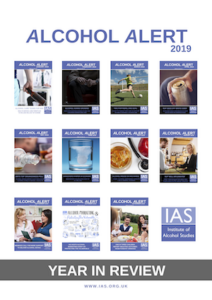In this month’s alert
Alcohol Alert 2019 : The Year in Review
The Institute of Alcohol Studies has produced a round-up of the year’s highlights in UK alcohol policy.
Please click on the images below to view each edition.
|
JANUARY 2019
The start of the year saw the release of a long-term plan for the NHS, which promised the provision of new Alcohol Care Teams to treat patients at the 50 hospitals with the worst levels of alcohol dependence-related admissions in the UK.
Meanwhile, the health secretary appeared to deny the nation had a drinking problem at all. |
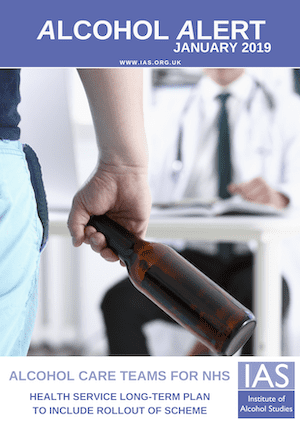 |
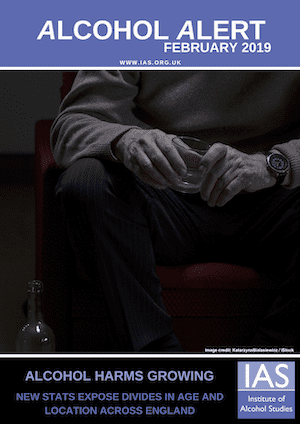 |
FEBRUARY 2019
Two official national reports on the health effects of alcohol in England revealed huge and growing disparities in drinkers’ outcomes, by age and by location.
Elsewhere, journalist Olivier van Beemen publishes a book exposing global brewer Heineken’s business practices in Africa. |
|
MARCH 2019
In Scotland, Scottish Health Action on Alcohol Problems (SHAAP) unveiled its new sponsorship partnership with Scottish Women’s Football, while the Holyrood adminstration urged drinkers to ‘Count 14’ as part of a campaign to raise awareness of the unit guidelines.
|
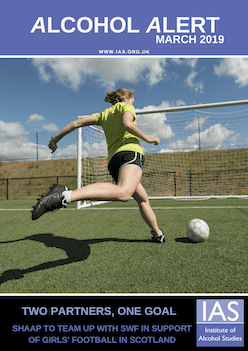 |
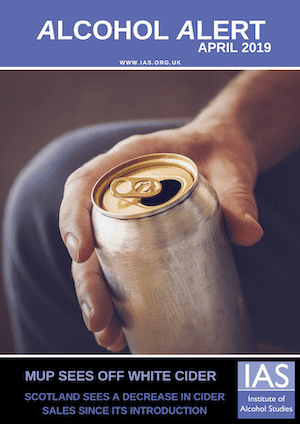 |
APRIL 2019
Newly-published data on alcohol sales in Scotland seemed to suggest a decrease in cider sales since the introduction of minimum unit pricing.
In other news, City of London’s premier insurance house – Lloyd’s of London – announced that it would extend its ban on drinking during office-hours on its premises to all workers within its jurisdiction. |
|
MAY 2019
Reports painted a bleak international picture for alcohol policy. Britain topped the world ‘drunkenness poll’, according to the new Global Drugs Survey, which also found alcohol to be behind nine out of ten incidents of sexual assault, while a modelling study predicted that the World Health Organisation would miss its aim to reduce alcohol harm by 10% by 2025.
|
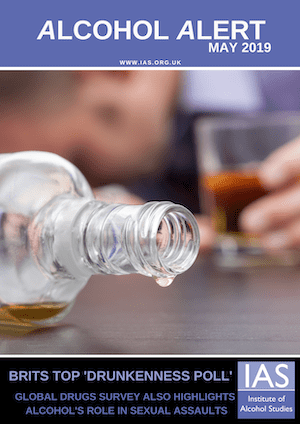 |
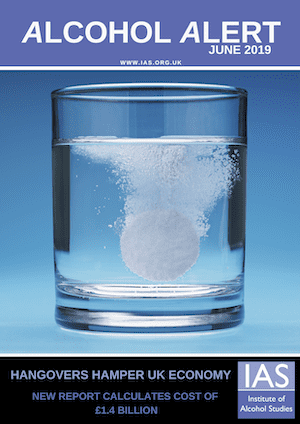 |
JUNE 2019
As many as 89,000 people may be turning up to work hungover or under the influence of alcohol every day, costing the UK economy up to £1.4 billion a year, according to an IAS report.
Investigative TV programme BBC Panorama exposes scandal over industry labelling, as producers stall on displaying guidelines on packaging. |
|
JULY 2019
Researchers from Kings College London found that cases of alcohol dependency are eight times more common among hospital patients than the general population.
A joint IAS and Fraser of Allander Institute report found that, contrary to received wisdom, higher taxes could, in fact, boost the economy. |
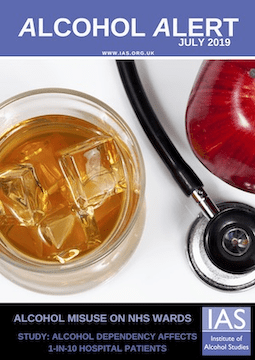 |
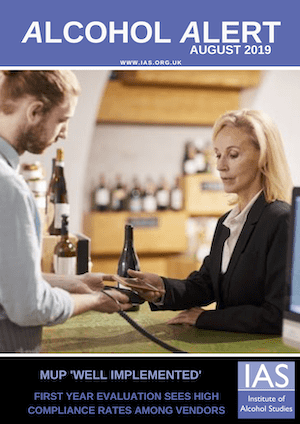 |
AUGUST 2019
A year on from the implementation of minimum unit pricing in Scotland, further evaluations of the landmark legislation confirmed its successful compliance among retailers.
Meanwhile, Abertay University’s Student Union bar became the first in the UK to stop selling alcohol, ‘because of falling demand’. |
|
SEPTEMBER 2019
The autumn season saw midwives calling for more support to deliver alcohol advice as a new report suggested the government did not effectively communicate the new guidelines to the profession.
There was a stand-off between government departments, as the health secretary criticised HM Treasury for promoting the return of duty-free alcohol in the event of a no-deal Brexit. |
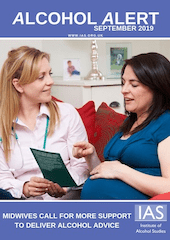 |
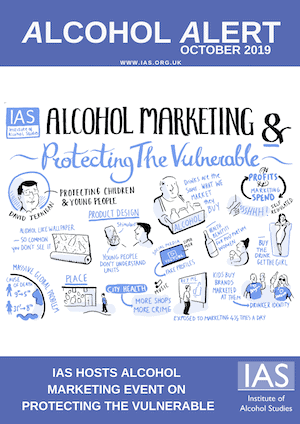 |
OCTOBER 2019
IAS hosted a conference ‘Alcohol marketing: Protecting the vulnerable‘, featuring lectures from an array of alcohol experts and researchers, and new material from Dr Amanda Atkinson on how the alcohol industry enforces gender stereotyping and objectification of women through its marketing practices.
|
|
NOVEMBER 2019
Research published in the Alcohol & Alcoholism journal suggests that one in three children experience negative outcomes as a result of their parents’ alcohol use, even amongst moderate drinkers.
Meanwhile, an OECD study found that Brits were still drinking a litre above average levels, despite falls in alcohol consumption in the last decade. |
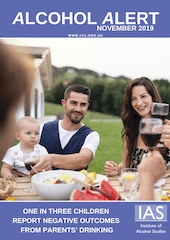 |
Podcast
Our monthly podcast features interviews with experts from across the sector.
How to shift the dial on alcohol policy in Europe
Florence Berteletti –
Eurocare
Anamaria Suciu –
Eurocare

